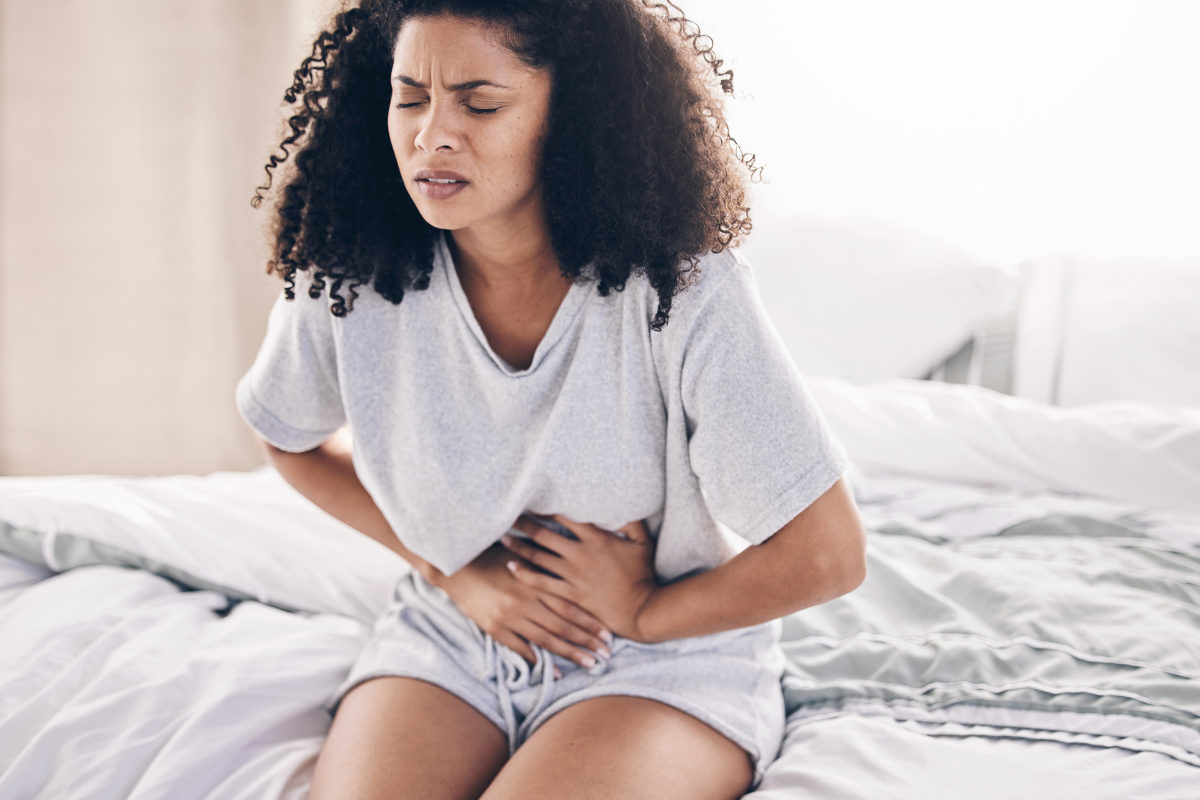
Progesterone is an essential hormone for women and plays a very important role in fertility, but when it becomes too low, it can cause many issues. And low progesterone is more common than you might think. Many women who experience symptoms like poor sleep, anxiety, or weight gain don’t realise low progesterone may be to blame, especially during times of change like after having a baby, going through perimenopause, or during menopause.
But understanding the signs to look out for is the first step toward feeling like yourself again and getting the treatment you need. Here are 11 symptoms of low progesterone to watch out for – what you can do about it.
1 – Anxiety and Mood Swings
Do you find yourself snapping more easily? Feeling anxious, restless, or overly emotional without a clear reason? Progesterone is known for its calming, anti-anxiety effect as it supports the brain’s GABA receptors which helps you to feel relaxed.
When progesterone levels drop, this can cause anxiety, stress and mood swings. Many women report feeling more anxious or irritable, especially during the second half of their cycle or throughout perimenopause or menopause, when progesterone production starts to decline.
2 – Sleep Issues
Sleep disturbances are one of the classic symptoms of low progesterone.The hormone supports the brain’s ability to relax and unwind. When levels fall, sleep can become lighter, more disrupted, and less restorative. For menopausal women, poor sleep is often one of the first and most frustrating symptoms to appear.
3 – Irregular or Short Cycles
If your menstrual cycles are getting shorter, more unpredictable, or you have started skipping months entirely, then it’s a clear sign that your progesterone levels might be too low. Progesterone is only produced after ovulation, so if ovulation is inconsistent or not happening at all, this could be down to a hormone imbalance and lack of progesterone.
4 – PMS That’s Worse Than Ever
Most of us expect a little pre-period grumpiness. But if your PMS is more intense
and you are experiencing extreme irritability, tearfulness, bloating, fatigue, or food cravings then you are most likely lacking in progesterone. These symptoms of low progesterone become especially apparent as estrogen levels dominate without progesterone to balance it.
5 – Hot Flashes
While often associated with a decline in estrogen, hot flashes can also be linked to low progesterone, especially in perimenopause. These sudden waves of heat, often accompanied by sweating and flushed skin, can hit during the day or wake you up at night. If you’re experiencing these symptoms, it’s worth looking at whether low progesterone is the cause.
6- Bloating or Weight Gain
Struggling with unexplained bloating or weight that won’t budge? Progesterone can affect fluid retention. When levels are low, your body may retain more water, leading to puffiness and bloating, particularly around your midsection. It also has an effect on your metabolism and can help you maintain a healthier weight by balancing out hormones like estrogen that can cause weight gain and increased fat storage.
7 – Low Libido
While libido is influenced by many factors, progesterone helps maintain sexual desire and overall sexual well being. When progesterone dips, so can your sex drive. For many menopausal women, the combination of low progesterone, lower estrogen, vaginal dryness, and fatigue creates a perfect storm for dwindling interest in sex, which can have a huge impact on how you feel in your relationship and your self esteem.
8 – Headaches and Migraines
Do you get more headaches around your period or random migraines that seem to have no cause? Hormonal fluctuations, including low progesterone, can trigger headaches in many women. Progesterone helps relax your blood vessels and calm inflammation, so low levels may increase the likelihood of throbbing, hormonal headaches or menstrual migraines.
9 – Breast Tenderness
If your breasts feel unusually sore, swollen, or heavy, especially in the lead-up to your period, low progesterone could be a contributing factor. This symptom often goes hand-in-hand with estrogen dominance, where progesterone isn’t present in high enough amounts to balance estrogen’s effect on stimulating breast tissue.
10 – Spotting or Breakthrough Bleeding
Noticing light bleeding between periods? Or spotting a few days before your period begins? When progesterone is low, the uterine lining may not remain stable. This can lead to spotting, early periods, or what’s known as breakthrough bleeding. It’s one of the more common symptoms of low progesterone and a clear sign that your cycle may be out of balance.
11- Difficulty Conceiving
If you’re trying to conceive and haven’t had success, low progesterone could be playing a role. After ovulation, progesterone prepares the uterine lining for the embryo to implant and supports the early stages of pregnancy. If levels are too low, it can make getting pregnant more difficult.
“Progesterone is one of the most overlooked hormones when it comes to women’s health. We often meet patients who’ve been struggling with anxiety, poor sleep, weight gain or PMS for years, not knowing that low progesterone is the cause. Once we restore balance, especially in women experiencing bad PMS or going through perimenopause or menopause, it’s incredible how quickly they start to feel like themselves again.”
- Dr. Jennifer Singh, Hormone Specialist at the Marion Gluck Clinic
What You Can Do About It
There are several ways to naturally boost your progesterone, including eating balanced diets with key nutrients, exercising, getting adequate sleep, and maintaining a healthy weight. However, if you are experiencing a hormone imbalance, the best form of treatment is through proven hormone therapies.
Read our blog on How to Increase Your Progestrone to find out more.
At the Marion Gluck Clinic, we specialise in getting to the root of hormonal imbalances through comprehensive hormone testing and doctor-led diagnosis, Once we understand your hormonal and health issues, we create a personalised treatment plan just for you through our highly effective bioidentical hormone replacement therapy (BHRT).
Why Choose the Marion Gluck Clinic?
As the UK’s leading hormone clinic, we’ve helped thousands of women regain control over their well-being with expert-led care and evidence-based treatments.
If you’ve recognised any of these symptoms of low progesterone, know that you don’t have to just deal with it, you can get the treatment you need to alleviate your symptoms for good.
Book your online consultation today with one of our expert hormone doctors and start your journey back to a happier, healthier you.



